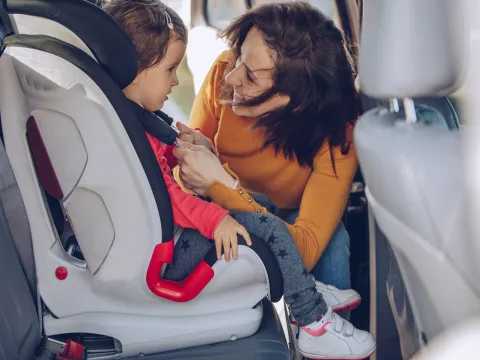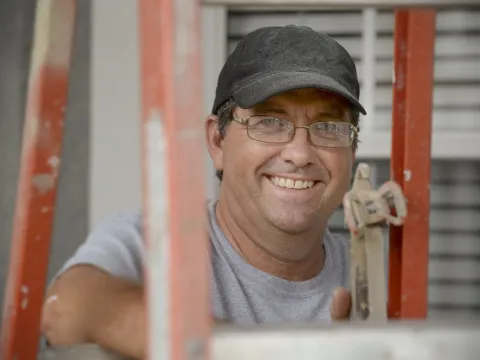- AdventHealth

In a car accident or other emergency, there are some facts that medical personnel absolutely need to know. Perhaps a child with a cochlear implant hearing device can’t get an MRI.
It was this question that drove an Australian mother named Natalie Bell to create a seat belt cover for her 10-year-old daughter, who has hearing loss.
The velcro attachment, which wraps around a seat belt strap or backpack, tells first responders that she is deaf, has a cochlear implant and cannot undergo an MRI.
In a widely shared Facebook post, Bell wrote “I always wonder what would happen if I was in a car accident with my daughter in the car and I was unable to let the doctors know that my daughter could not have a MRI due to having a cochlear implant.”
Depending on the model of the devices, some children with cochlear implants can get an MRI, or magnetic resonance imaging scan, while others cannot.
Bell wrote that her covers “can be made for any special needs that the medical team will need to know if you are unable to tell them.”
Erica Heatherington, an AdventHealth Sports Med and Rehab pediatric speech language pathologist, says planning like this will pay off in an emergency.
“Having a plan in place in case of any unexpected emergencies (like natural disasters to car accidents) is very important for children with different disorders such as hearing loss because it will help alleviate stress and could possibly save a life,” she says.
Emergency Planning Tips
Heatherington has these suggestions for parents of kids with special medical needs:
- Pack an emergency travel bag.Parents of kids who wear hearing devices, such as bone-anchored hearing aids (BAHAs) or cochlear implants should pack a bag that includes extra batteries, parts and instructions about MRIs.
- Talk to your child about what might happen in an emergency if you’re not there.
- Write down your child’s emergency or medical needs and keep them on your child.
- Consider a first responder alert such as a seat belt cover or bracelet.
As a parent, it can be hard to make a plan without knowing about how potential emergencies could have a unique impact on your child’s health. That’s where we come in.
Helping You Get Ready
Heatherington says health care professionals like her have a big role in helping families prepare for emergencies.
“We can spend time talking to our families and educating them about the importance of emergency preparedness,” she says. “We also help parents make a list of things they might need in case of an emergency, including medications and batteries for hearing equipment.”
We’re also happy to work directly with children to make sure they know what to do in an emergency.
Giving You the Tools
Working one-on-one with children to help them develop communications skills is part of Heatherington’s role as a therapist, but it’s not the only one. She also helps families become the most important force behind their children’s listening and spoken language development.
That’s why her approach, called auditory verbal therapy, is known as a “parent-centered” technique.
“Our goal is that with early diagnosis, amplification and intervention that our children will grow up in a regular learning environment,” Heatherington says. This should help them become more independent and allow them to thrive in regular society.
Our whole-person care philosophy means our partnership with families doesn’t end at the clinic door. We empower families with the skills to help their children live as independently as possible.
Please consider learning more about our program and what we can offer your family.



